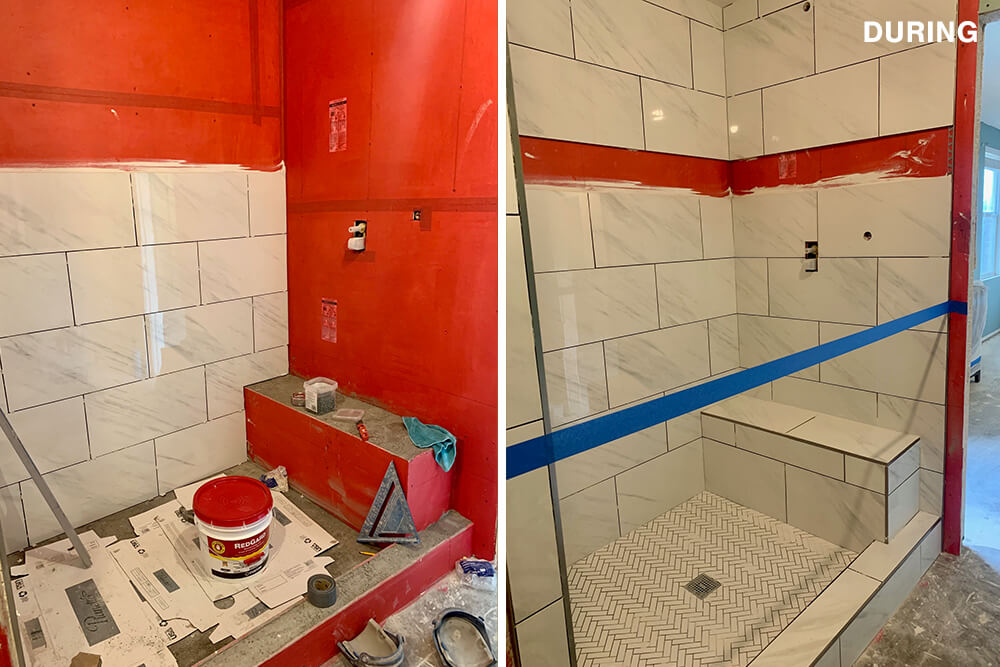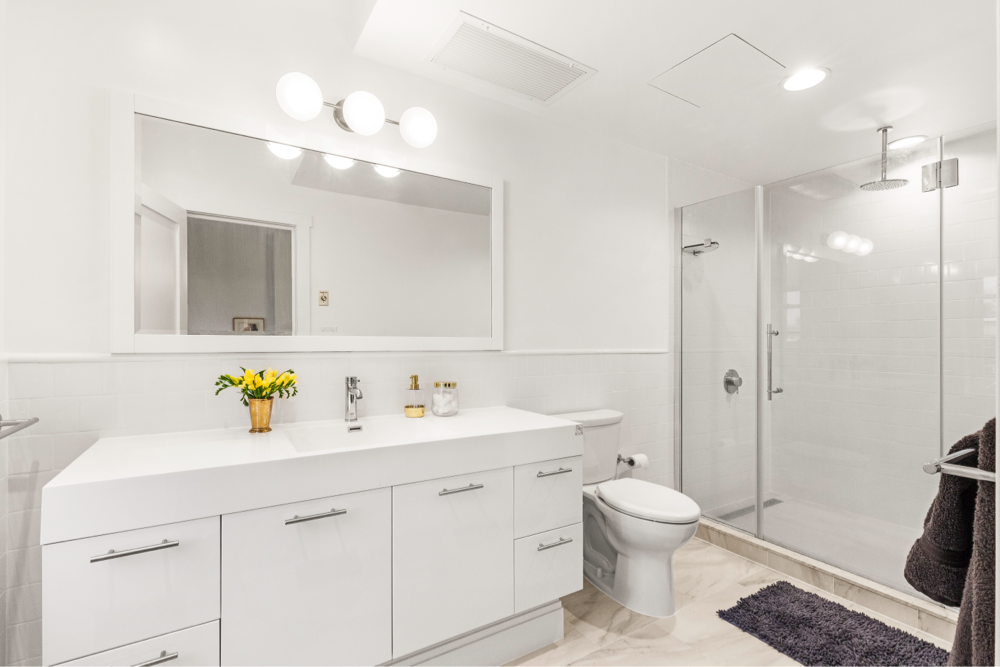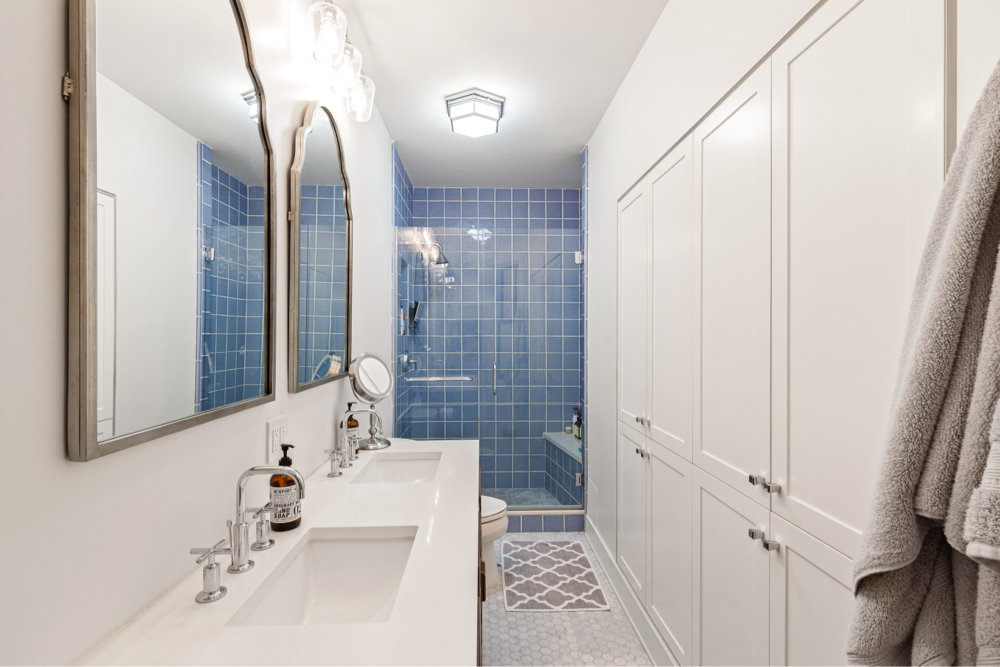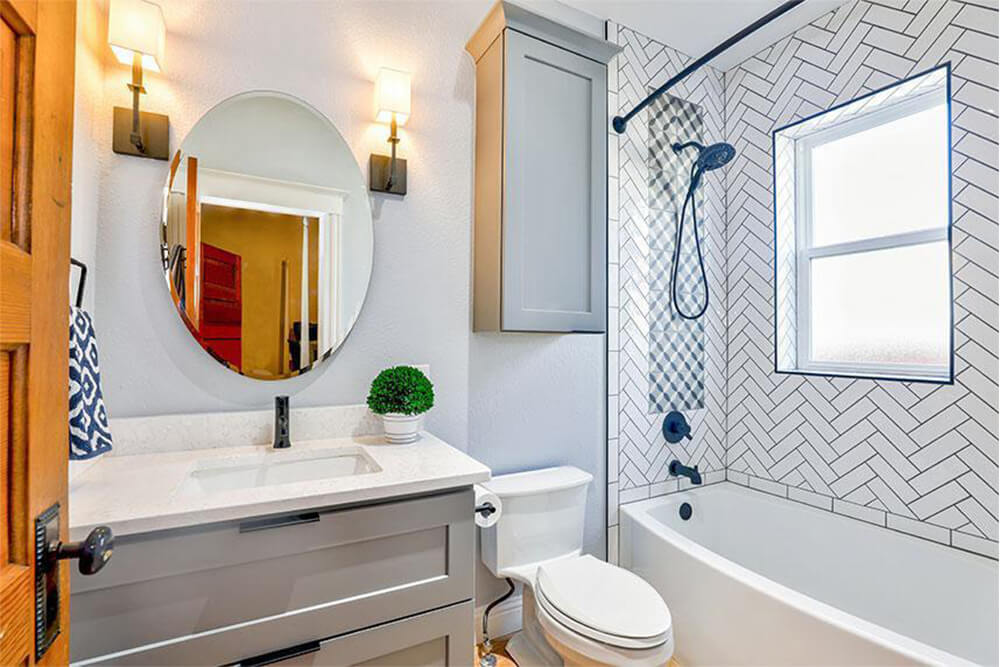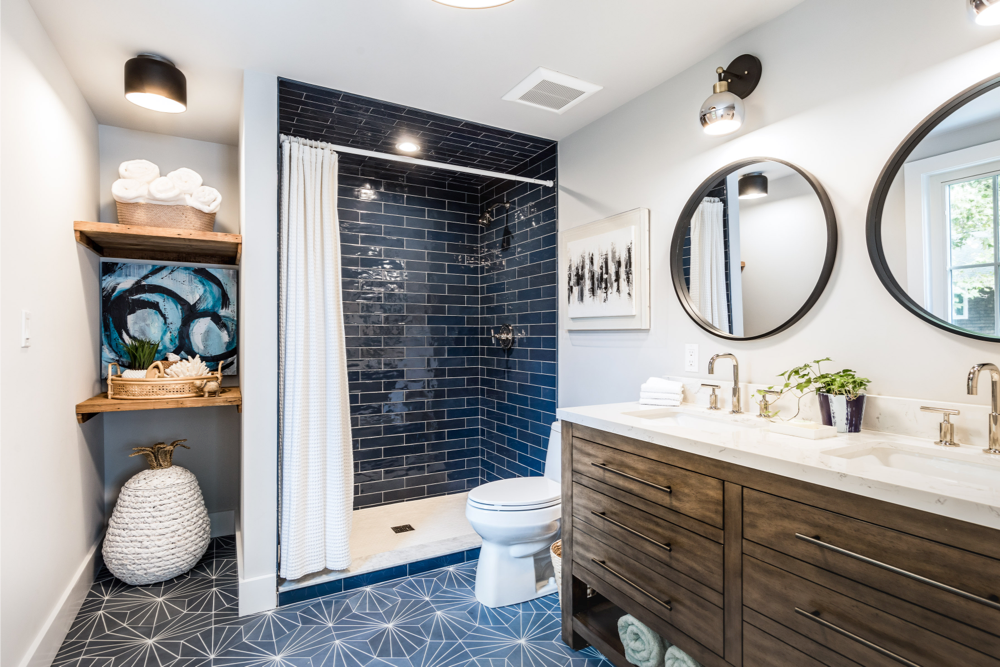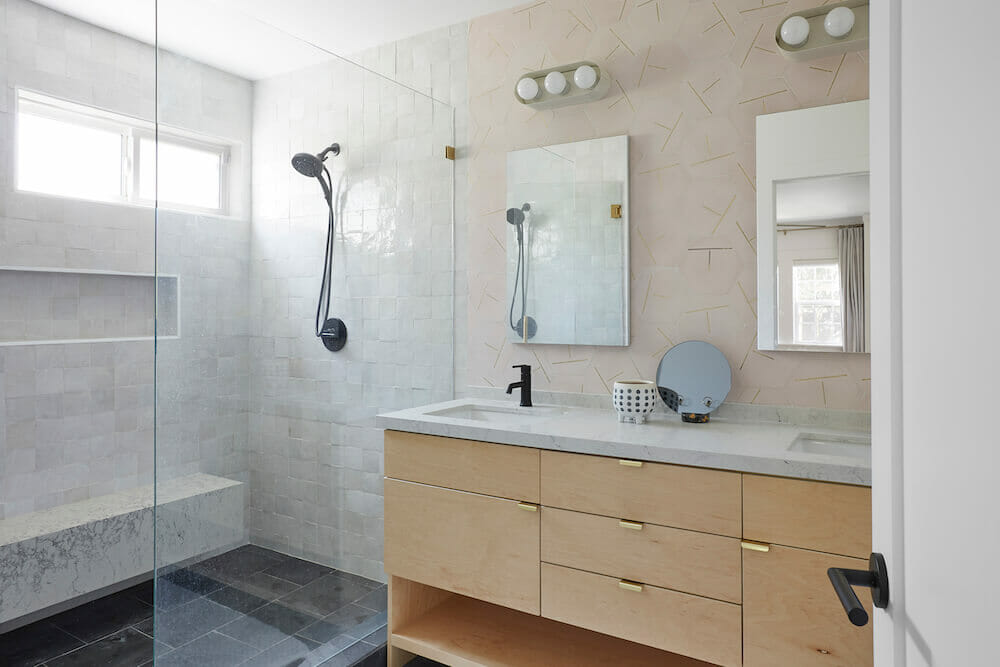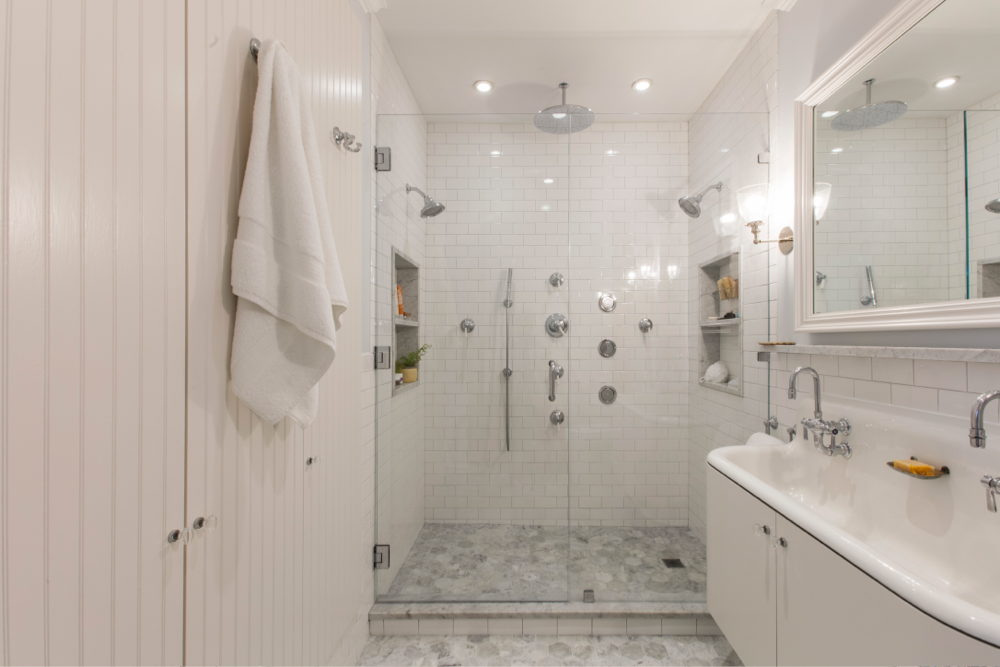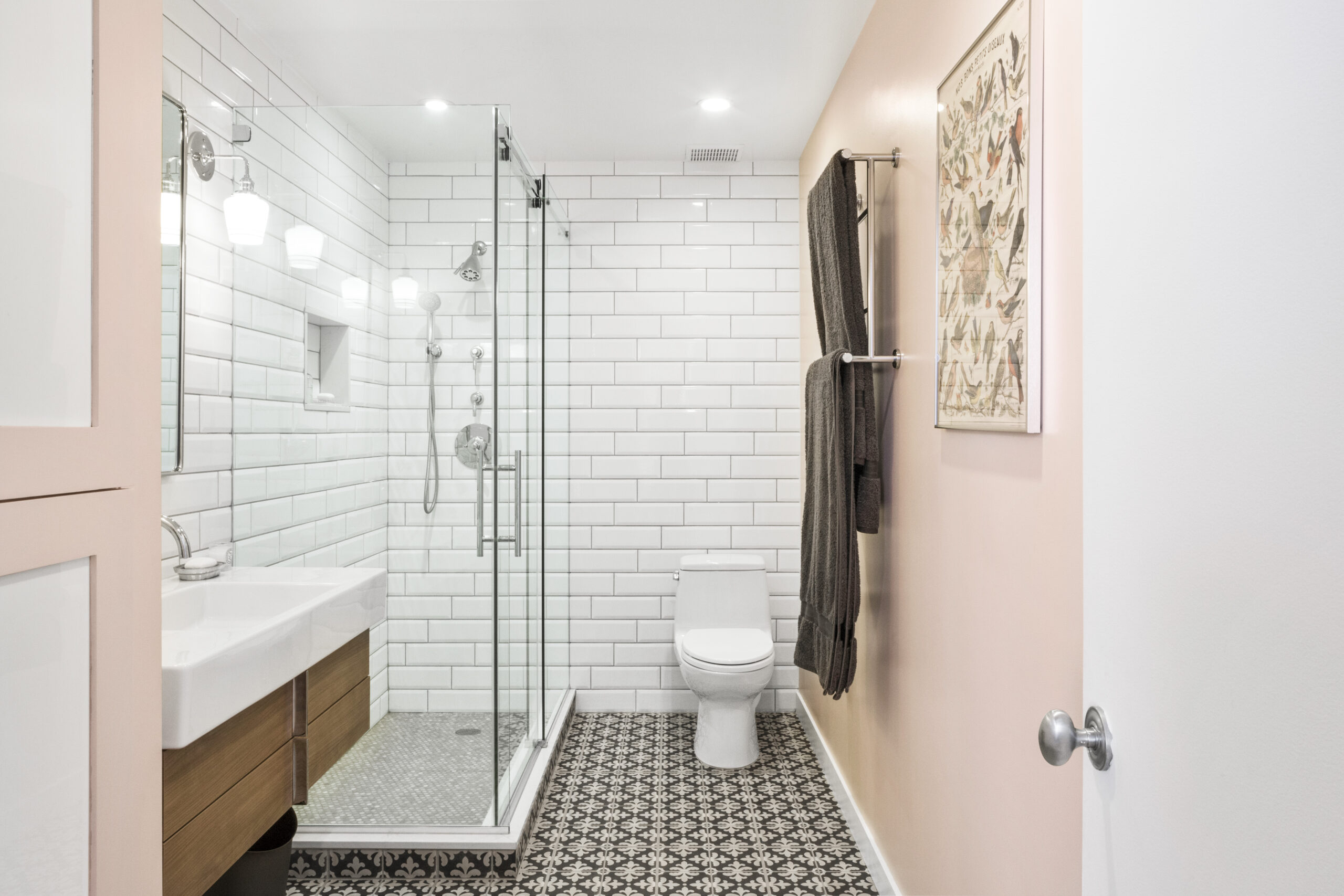Home / Blog / Home Renovation Process
Bathroom Renovation Guide: Permits, Contractors & Detailed Timeline
Are you planning a bathroom renovation soon? Knowing the timeline is crucial for staying sane and on budget. Forget vague estimates—we’re diving deep into the nitty-gritty, outlining every phase from pre-construction prep to the final punch list. Learn the realistic timeframes, potential pitfalls, and expert tips to keep your project on track and minimize those dreaded delays.
A step-by-step renovation guide and timeline
Post your project on Sweeten for free and make your dream renovation a reality. Sweeten simplifies home renovation by connecting homeowners with top-rated general contractors, handling the vetting process and project management. To learn more about how we can help, check out our home renovation services.
Scheduling your remodel on the calendar
How long does a bathroom renovation take? Sweeten general contractors say the construction period will average 20–30 working days. Overall, a renovation can take between six weeks to three months, from planning to punch list. If you plan to move plumbing or electrical wiring, be prepared to apply for city permits and board approvals. They are the biggest culprits for delaying renovations.
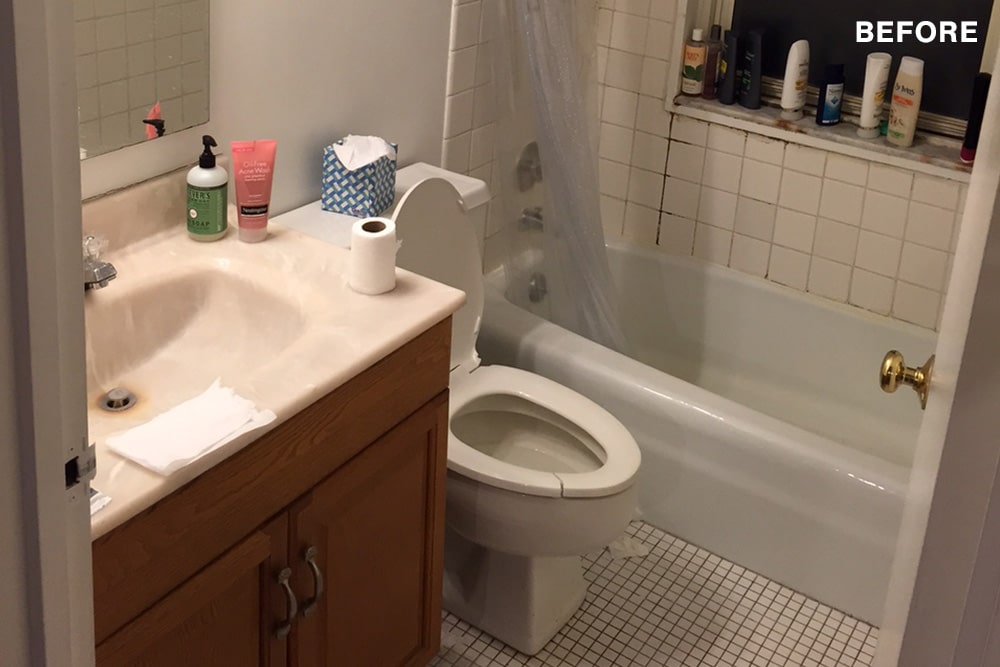
PRE-CONSTRUCTION PHASE
The visual elements of the bathroom might get most of your attention. However, there’s behind-the-scenes work to be done before anyone picks up a sledgehammer.
STEP 1: Close on your property (1-3 months)
While some renovators already own, a significant number of homeowners are in contract or preparing to close on a property when they begin planning a renovation. You should wait until you have closed on the property, with keys in hand, before doing anything. If you’re in a hurry, wait until you’ve at least signed the contract before beginning the design process.
STEP 2: Post your project (1-3 days)
Post your project to Sweeten and begin inviting general contractors to bid. On the Sweeten site, add the details about the space you want to renovate, your inspiration photos (optional but useful), and any other information that would help in finding your perfect contractor. You will receive three contractor recommendations right away. Read the reviews and photos of past projects on the contractors’ profiles. Narrow down the contractors you’d like to discuss your project with.
STEP 3: Schedule site visits and solicit bids (1-3 weeks)
An on-site visit is the best way for a contractor to understand the scope of the project, the physical possibilities, and the limitations of the space. It’s also a chance for the two of you to see if your personalities and communication style mesh. After you schedule your on-site visit, read this post on how to prepare for the meeting. Depending on scope size, you should expect a written bid 5-7+ business days after your visit.
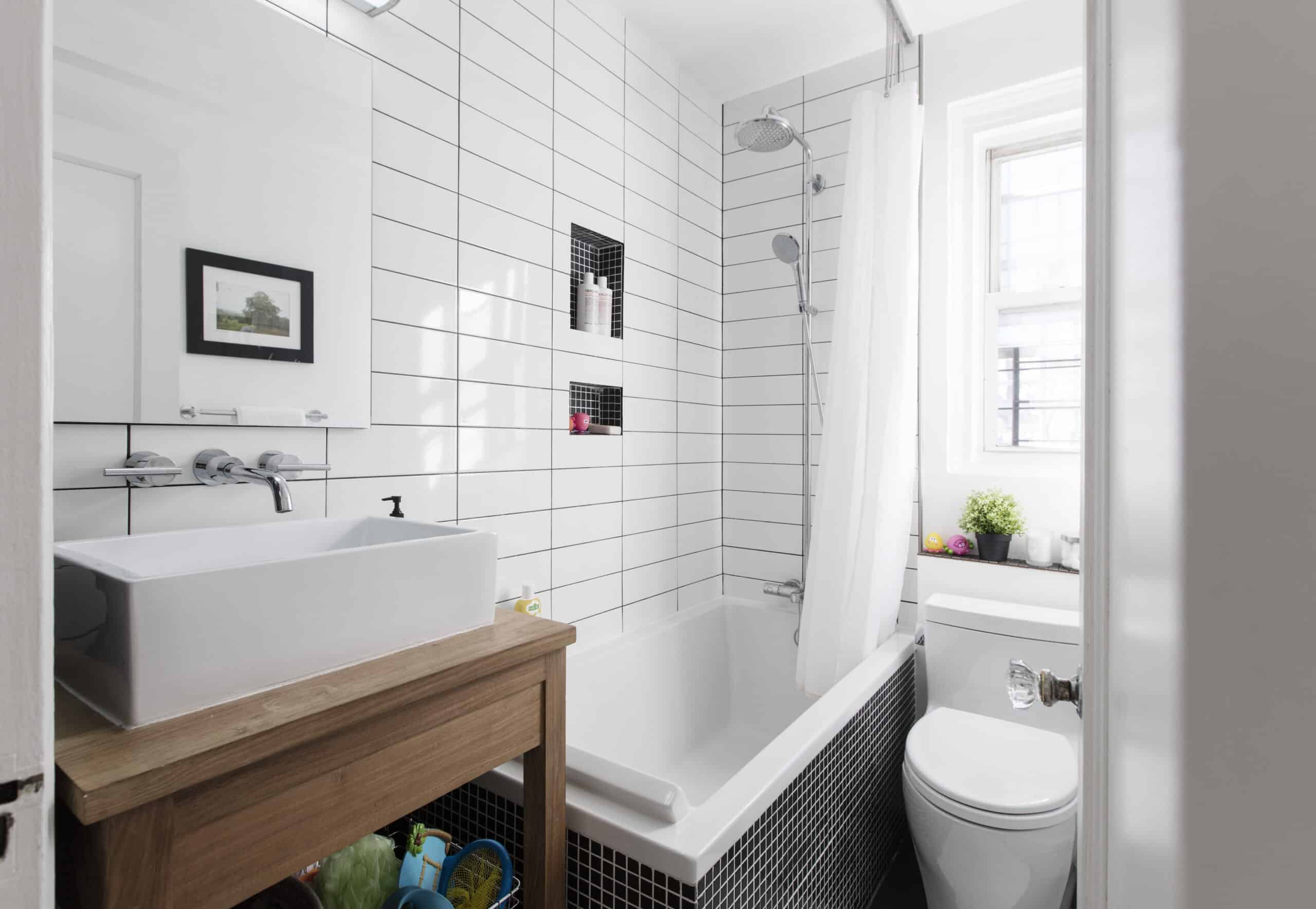
STEP 4: Level bids and choose a contractor (1-2 weeks)
Once all the written bids have come in, it’s time to compare and contrast. Sweeten can help walk you through them, both Sweeten and non-Sweeten estimates. This primer on leveling bids might come in handy. If you have follow-up questions, now is the time to ask. We suggest you schedule a free call with Sweeten to walk you through the various bids and weigh in on the selections.
STEP 5: Sign contract and finalize construction schedule (1 week)
Once you’ve decided on a contractor, they will put together a contract for you to review. This will typically include a description of the work to be done, an outline of costs, as well as the timing of payments throughout the project.
STEP 6: Obtain permits and approvals (ranges widely)
Of all the steps that might cause delays, this is the big one. Obtaining the correct permits and board approvals have held up many a renovation. However, our contractors are experienced in navigating these processes. They can advise you on how best to achieve your renovation goals with the least amount of hassle. Moving plumbing or gas lines requires an architect and additional DOB permits.
Sweeten homeowners have reported obtaining approvals in as little as two weeks—but it’s more common for it to take a couple of months. If you live in a stand-alone house, you won’t need to worry about building board approvals. However, you’ll still need the requisite city permits for any electrical or plumbing work to make sure that everything is up to code. Sweeten brings homeowners an exceptional renovation experience by personally matching trusted general contractors to your project, while offering expert guidance and support—at no cost to you. Renovate expertly with Sweeten
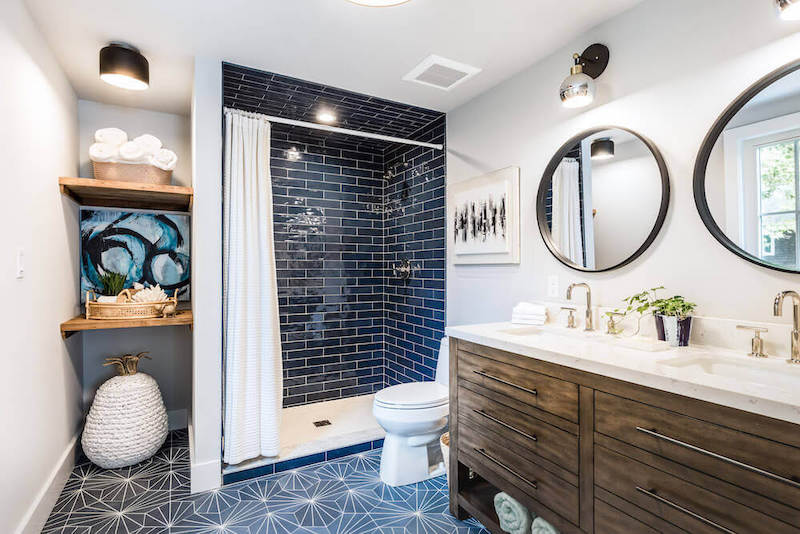
STEP 7: Source materials (ranges widely)
If you are responsible for sourcing all or some of the materials in your renovation, be sure to place the orders as soon as the design plan is finished. Certain items have long lead times, and you don’t want that tub to hold up the entire renovation. If time is a concern, look at what’s currently in stock and ready to ship. Speak with your contractor about timing the product delivery to coincide with installation.
STEP 8: Tell your neighbors (15 minutes)
Be a good neighbor and warn yours that a renovation is beginning imminently. Tell them what to expect and how long the project is slated to last. It’s always easier to withstand the disruption when you know there’s an end in sight. It doesn’t hurt to bring a bottle of wine or a gift card from a local coffee shop.
CONSTRUCTION PHASE
Note: While most of the steps under “Construction” are your contractor’s responsibility, it’s important to understand what should be happening and when. The most important steps you’ll be in charge of are making scheduled payments to your contractor (outlined in your contract). Keeping your schedule open for several hours a week to answer questions about details or changes that come up over the course of construction.
STEP 9: It’s demo time (1 day)
Out with the old! Now that you’re done with the paperwork, it’s time for demolition. Be sure to protect the items that are staying with tarp or plastic. Depending on how large your bathroom is, and how extensive the renovation is, this shouldn’t take more than four hours.
STEP 10: Reroute plumbing and electrical (1-2 days)
After you’ve stripped the space down to the studs, it’ll be easy to get new plumbing and wiring where it needs to go. Consider whether any plans need to be altered now that you can see what’s behind the walls.
STEP 11: City inspections and sign-offs (1 hour on-site)
If you needed city permits, you may need inspections and a sign-off before closing up the walls, and a final sign-off as well. While it may take the inspector an hour to do his job at the site, scheduling the actual appointment could take days or weeks.
A master plumber is typically allowed to sign off on pipework for water lines in the case of a no-show by the city inspector. However, an inspector must examine and approve any work on gas lines. You are not allowed to close up the walls and move on to the next phase of the project before this inspection happens.
Note: With electrical work, inspectors generally are scheduled for visits once the project is 100 percent complete, and they will check the electrical panel, junction boxes, and outlets. Sometimes, because of city bureaucracy and delays, your electrical inspection may be rescheduled two or three times. Check with your contractor or architect about what your project requires.
STEP 12: Installation – floor tiles (½ – 1 day)
To prevent having to redo the flooring if you decide to reconfigure your space in the future, make sure that the flooring is consistent throughout the space, even if some of it will be hidden.
STEP 13: Installation completion (1-3 days)
Installation of everything else, including the tub, vanity and sink, toilet, and any built-in shelving. Tiling, lighting, and hardware usually come last.
STEP 14: Clean-up (1 day)
Typically, contracts state that the space will be left in “broom-swept” condition. However, you may want to hire post-construction cleaning specialists to make sure that your new floor is spic-and-span clean. For a bathroom renovation, consider having the service clean your entire home since construction dust tends to settle in the most unlikely places.
POST-CONSTRUCTION PHASE
The finish line is in sight. But don’t forget these last—but important—steps.
STEP 15: Final walk-through with the contractor (30 minutes)
Review the work with your contractor. Try all the drawers and doors, look closely at the edges and grout lines, and make sure everything is working the way it should. If there are any problems, point them out and add them to the punch list. The contractor will either fix it on the spot (if it’s minor) or set up another time to return. Sweeten’s founder and CEO, Jean Brownhill, advises to keep notepads in each space, and to not speak to your contractor for two weeks after project completion. Spend time living with the space and taking notes whenever you discover something that needs a fix or an adjustment.

STEP 16: Punch list items (1-5 days)
Depending on what the items are—anything from straightening a cabinet door to waiting on installing that last out-of-stock item—it could take anywhere from a day to several weeks. When it’s on the long side, though, that is usually due to backordered items. Otherwise, your contractor should be able to return and fix everything in a few days.
STEP 17: The final payment (10 minutes)
You’ve been making installments throughout the renovation. When the last item on your punch list has been addressed, the remaining payments are made to your contractor.
When you’re ready to get started on your bathroom or home remodel, work with Sweeten to renovate with the best contractors.
We can help plan your renovation
Find endless home renovation inspiration, detailed guides, and practical cost breakdowns from our blogs. You can also post your project on Sweeten today and get matched with our vetted general contractors and get estimates for free!
FAQs
The most common culprits for delays are obtaining city permits and board approvals, especially when moving plumbing or electrical wiring. Sourcing materials with long lead times can also cause delays.

